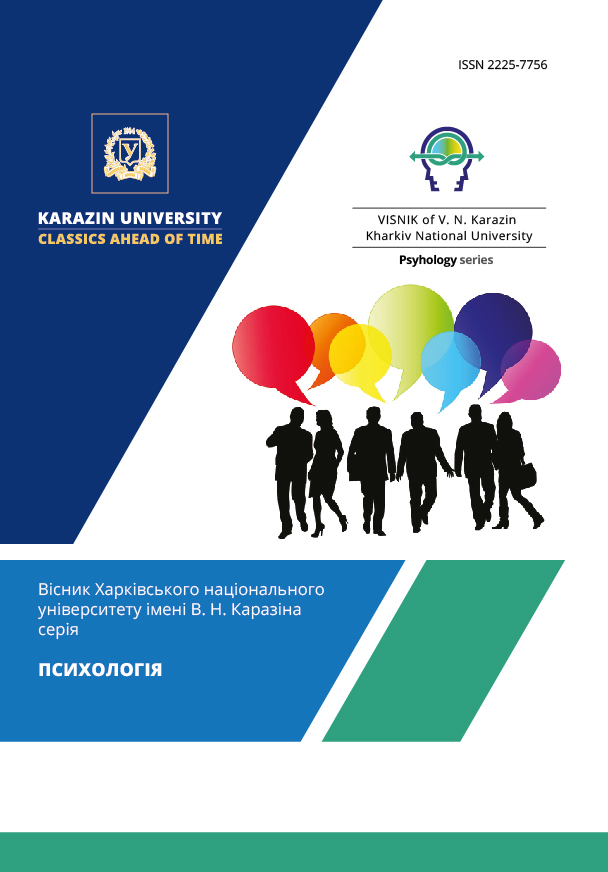INFLUENCE OF FAMILY SCENARIOS ON FORMING OF SYNDROME OF «EMOTIONAL COLDNESS» IN INTERPERSONAL RELATIONSHIPS
Abstract
This article presents the family scenarios of women with the syndrome of «emotional coldness» in interpersonal relationships, which complicate creation of psychological intimacy. Purpose: to analyse the family scenarios of women with the syndrome of «emotional coldness» in interpersonal relations. Research methods: questionnaire of diagnostics of style of interpersonal relationships (О.S. Kocharyan, E.V. Frolova, І. О. Baru), genogram, semistructured diagnostic interview, content-analysis, case-analysis. Methods: 75 women in age 28-33, unmarried or are in civil marriage (45 women with the syndrome of «emotional coldness», 30 women without the syndrome of «еnotional coldness»). All women were participants of the psychological groups of the analysis and correction of family scenarios. Research was conducted in 2015-2019. Women with the syndrome of «emotional coldness» in interpersonal relationships have such types of family scenarios, as the «Disappearing man», «Man is a hero», «Love out of marriage», «Men are necessary to be cheated», «Man is a father». Narrations of these scenarios negatively influence on forming of relations of psychological intimacy, namely: you can not trust men and count on their support, a man is needed only for continuation of family, there is not love in marriage etc. For the correction of negative narrations we use retelling of histories with changing of usual accents, distancing from characters of ancestors, and also searching of positive examples from other family stories.
Downloads
References
Giddens E. Transformatsiya intimnosti. Seksualnost, lyubov i erotizm v sovremennyih obschestvah / E.Giddens; [per. s angl. V. Anurina]. – Sankt Peterburg : Izd. dom «Piter», 2004. – 208 s.
Kocharyan A. S. Vliyanie sotsialnyih faktorov na formirovanie sindroma «emotsionalnogo holoda» u zhenschin / A. S. Kocharyan, N. N. Tereschenko, T. S. Aslanyan // GendernI stereotipi IndivIdualnogo zdorov’ya: materIali mIzhn nauk.-prakt. konf. (3 zhovtnya 2007 r., m. Lutsk). – S. 111–115.
Kocharyan O. S. Rozrobka ta psihometrichna otsInka opituvalnika dIagnostiki stilyu mIzhosobistIsnih stosunkIv / O. S. Kocharyan, E. V. Frolova, I. O. Baru // PsihologIchne konsultuvannya I psihoterapIya. – 2014. – # 1–2. – S. 209–221.
Paradopoulos L. Genograms in counselling practice: A review (Part 1) // Counselling Psychology Quarterly. – 1997. – 10:1. P. 17-28.
Chrzastowski, S. K. A narrative perspective on genograms: Revisiting classical family therapy methods. // Clinical Child Psychology and Psychiatry. – 2011. – # 16(4). – P. 635–644.
Citations
TRANSGENERATIONAL MODELS OF MARRIAGE: EXPERIENCE WITH GENOGRAMS
(2020) Visnyk of V. N. Karazin Kharkiv National University. A Series of Psychology
Crossref




